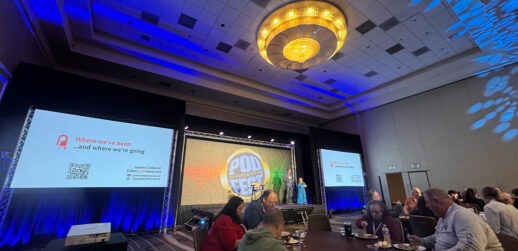In a March 23 testimony before the U.S. Senate Committee on Commerce, Science & Transportation, “Enhancing Consumer Protections and Connectivity in Air Transportation,” William J. McGee, senior fellow for aviation and travel, American Economic Liberties Project, told the Committee that “the nation’s airline industry is broken.”
McGee went on to comment, “Every day passengers are faced with fewer choices, higher fares, and a plethora of junk fees added onto airfares. Flight disruptions have become the norm rather than the exception, and when things go wrong–as they so often do now–we are at the mercy of the airlines’ own Contracts of Carriage, rules written by and most assuredly for the airlines. American Airlines is about to launch “New Distribution Capability,” which will make airfares more opaque than ever. Despite the industry notching record consumer complaints in recent years, Frontier Airlines may have set the tone for all U.S. airlines last November when it permanently shut down its telephone call centers; the message was clear: don’t bother calling, because we don’t want to hear from you.”
Rough Air
The hearing was chaired by U.S. Senator Maria Cantwell (D-WA), who said in her opening remarks: “The American consumer has had a rough flying experience over the past few years. In 2020, the Department of Transportation received nearly 30,000 airline refund complaints, more than a 4,600% increase from 2019. The following year, in 2021, DOT received over 6,600 complaints, still nearly a 1,000% increase over pre-pandemic levels. And last year, by November 2022, U.S. consumer complaints were already 603% higher than in November 2019. And then we had the massive disruptions that left nearly 2 million Southwest Airlines passengers delayed and stranded across the country. In these situations, the U.S. consumer is left with limited information, hardly any choices, and very little recourse.”
Cantwell said that she hoped the Senate could work together on creating a “new passenger bill of rights that gets a better deal for the U.S. consumer.”
“We must take down the hurdles to getting your money back when you don’t receive the service you paid for,” she said. “Any travel credit if accepted in lieu of a refund should never expire. That’s your money and should be in your bank account. We also need to have real-time, real-person communication when a system breaks down like in the Southwest situation. That system failure left consumers stranded without any information and no one to talk to. In this kind of a massive shutdown, we need a better communication system. Second, Congress must end unfair and hidden fees known as “junk fees” that are taking real money out of the pockets of Americans. We should force the rebooking fees [to end], when your flight is cancelled or delayed by the airline itself and stop that practice.”
DOT to the Rescue…or Not
In cross-questioning, Cantwell asked McGee if he thought the Department of Transportation (DOT) was doing a good job protecting passengers’ rights. McGee responded that the was “clear” that the DOT doesn’t have enough authority to enforce refunds,” is short-staffed and under-authorized.
McGee recommended that “state governments and citizens should be given greater rights to police the industry. One of the most harmful byproducts of deregulation was the inclusion of a federal preemption clause, which effectively gave only Congress and the U.S. Department of Transportation authority to oversee the airlines. For 45 years, this has meant that state courts, state attorneys general, and state legislatures have been largely powerless in reigning in the excesses of the industry’s anti-competitive greed and mistreatment of passengers, and consumers have had fewer rights when interacting with airlines than they have with virtually any other consumer industry.”
Mergers and Acquisitions
McGee, Senator Amy Klobuchar (D-MN) and speaker, Diana Moss from the American Antitrust Institute also testified that the potential merger of JetBlue and Spirit Airlines would in Klobuchar’s words, “harm passengers, workers and communities.”
Sara Nelson, international president of the Association of Flight Attendants-CWA, AFL-CIO spoke out in favor of the merger, stating that the merger would level Spirit up to JetBlue’s playing field by standardizing seat pitch to a roomier comfort level and bringing JetBlue’s high customer service ratings to a low-cost carrier. “The JetBlue-Spirit combination is the first merger that we enthusiastically support because it sets competition to the highest standards for workers and consumers,” she said.
Meeting Planners Takeaway
U.S. airlines are more and more under fire from politicos and the public but that does not translate into actionable changes. Educate your clients to understand their current rights for canceled or delayed flights and to demand them directly from the airlines—many of whom do not now voluntarily comply with the letter of the law on refunds. During the Senate hearing, McGee cited the case of a colleague present in the room whose Delta flight was canceled and was told he could get a “credit” rather than a refund when a refund was due. McGee asked the Senators present to imagine what the outcome would have been if he hadn’t had a friend who was a consumer aviation advocate.




